Intermittent Fasting – A Cross-Disciplinary Dialogue among Academics, Practitioners and Scientists
Description
Well before the scientific world became aware of the tremendous health benefits of fasting, intermittent fasting, and caloric restriction, this practice was being observed by participants from a variety of cultures over the span of thousands of years. Recent research has shown that intermittent fasting of up to 20 hours each day can have significant health benefits ranging from an increase in life span to better outcomes in cancer treatment therapies (Cabo et al, New England Journal of Medicine, 2019). However, a variety of benefits can be obtained by participating in different regimens of intermittent fasting.
Given the increased popularity and interest, there is a need for trans-disciplinary dialogue, especially since thousands of people adhere to fasting in the dharmic traditions. One goal of this conference will be to invite academic scholars to elaborate upon the different fasting methods/regimens, how people prepare/train for fasts, and the types of foods allowed/disallowed during intermittent fasting. In addition, this might provide “food for thought” to scientists and researchers as opportunities for further inquiry. This dialogue will help to delineate what type of intermittent fasting is well supported by current scientific understanding and what remains to be investigated. In addition, the current scientific evidence can also inform practices that may be detrimental to health. Finally, the last goal of this meeting is to minimize the cultural appropriation around intermittent fasting and acknowledge the contributions that the worldwide traditions have in these practices.
Target Audience
This activity is intended for Healthcare providers (MDs, NPs, PAs), Dieticians, Social Workers, and Lay public.
Learning Objectives
Upon completion of this activity, participants will be able to:
- Summarize the health benefits associated with intermittent fasting for application in clinical context
- Examine the cultural underpinnings around popular practices of intermittent fasting
- Identify gaps between practices and current knowledge around intermittent fasting, along with opportunities for future inquiry
Additional Information
Benson-Henry Institute for Mind Body Medicine, OSHER Center for Integrative Medicine and Mass General Brigham

![]()
![]()
| Time | Title | Speaker | ||||
1:00pm | Introductions | Consul General Randhir Jaiswal | ||||
1:15 | “What are the Health Benefits Associated with Intermittent Fasting?” | Mark Mattson, PhD (John Hopkins) | ||||
1:45 | “Perspectives on Intermittent Fasting from Ayurveda” | Vasant Lad, MASc (They Ayurvedic Institute) | ||||
2:15 | Moderated Discussions and Q/A | Bal Ram Singh | ||||
2:45 | Break | |||||
| Breakout Section 1 | Breakout Section 2 | |||||
| Time | Title | Speaker | Time | Title | Speaker | |
3:00 | “Circadian Rhythms & When to Eat” | Frank Scheer, PhD (Harvard Medical School) | 3:00 | “Yogic Diet and Fasting: Practice and Science through a Lens of Wellbeing” | Sat Bir Singh Khalsa, PhD (Harvard Medical School) | |
3:20 | “Asceticism, Well-Being, and Spiritual Purification: Fasting in Jainism” | Ana Bajželj, PhD (UC Riverside) | 3:20 | “Buddhist Contributions through a Lens of Wellbeing” | Sangseraima Ujeed,PhD (University of Michigan) | |
3:40 | Moderated Discussions | Yogesh Rathi, PhD (Harvard Medical School) | 3:40 | Moderated Discussions | Darshan Mehta, MD, MPH (Harvard Medical School) | |
| Time | Title | Speaker | ||||
4:00 | Break | |||||
4:15 | “How can Academic Scholars Inform each other to Advance Science and Practice” | Brian Hatcher, PhD (Tufts University) | ||||
4:45 | Wrap Up | Darshan Mehta, MD, MPH; Yogesh Rathi, PhD; Bal Ram Singh | ||||
5:00pm | Adjourn | |||||

Darshan Mehta, MD, MPH - Course Director
Medical Director,
Director of Medical Education for Benson-Henry Institute for Mind Body Medicine,
Massachusetts General Hospital (BHI-MGH);
Director of Education at Osher Center for Integrative Medicine,
Harvard Medical School and Brigham and Women’s Hospital (OCIM)
Darshan Mehta, MD, MPH Dr. Mehta is Medical Director and Director of Medical Education for the Benson-Henry Institute for Mind Body Medicine at Massachusetts General Hospital (BHI-MGH) and Director of Education at the Osher Center for Integrative Medicine, Harvard Medical School and Brigham and Women’s Hospital (OCIM). His educational and research interests include curricular development in complementary and integrative medical therapies, mind/body educational interventions in health professions training, and promotion of professionalism in medical trainees.
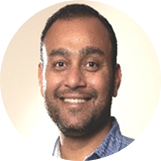
Yogesh Rathi, PhD - Course Director
Associate Professor,
Harvard Medical School
Yogesh Rathi, PhD Yogesh Rathi is an Associate Professor in the Department of Psychiatry and Radiology at Brigham and Women’s Hospital, Harvard Medical School, Boston. His research focus is at the intersection of brain imaging and neurosciences to understand the structure and function of the brain.
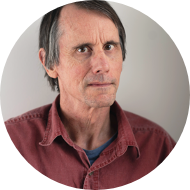
Matt Matterson, PhD
Faculty of Neuroscience
Johns Hopkins University School of Medicine
Mark Mattson, PhD is on the faculty of Neuroscience at Johns Hopkins University School of Medicine. The former Chief of the Laboratory of Neurosciences at the National Institute on Aging, Dr. Mattson is among the most highly cited neuroscientists in the world. His research has advanced our understanding of the cellular signaling mechanisms that control the formation and plasticity of neuronal networks in the brain, cellular and molecular mechanisms of brain aging and neurodegenerative disorders. His findings on how the brain responds adaptively in the face of challenges has been used to develop novel interventions that work to promote lifelong optimal brain function.
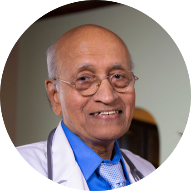
Vasant Lad, MASc
Ayurvedic Physician and Executive Director
Ayurvedic Institute
Vasant Lad, MASc Founder of The Ayurvedic Institute, Vasant has spent the last 40 years promoting the transformative power of Ayurveda to the West. His passion for healing has garnered him respect throughout the world, and he is considered the premiere authority on Ayurveda outside of India. The author of numerous books, his insights range from introductory courses in Ayurveda and yoga to advanced clinical pathology immersion programs.
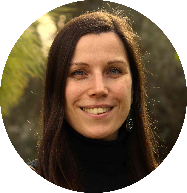
Ana Bajželj, PhD
Director of Undergraduate Studies,
Associate Professor and Shrimad Rajchandra Endowed Chair in Jain Studies
UC Riverside, Department of Religious Studies
Ana Bajželj, PhD is an Associate Professor of Religious Studies and Shrimad Rajchandra Endowed Chair in Jain Studies at the University of California, Riverside. Her research focuses on Jain philosophy, metaphysics, and ethics. In her upcoming book, Insistent Life: Principles for Bioethics in the Jain Tradition (UC Press, 2021), Ana investigates the relationship between Jainism and bioethics, exploring how the tradition informs the attitudes and decisions of contemporary Jain medical professionals

Frank A.J.L. Scheer, PhD
Neuroscientist,
Brigham and Women's Hospital;
Professor of Medicine,
Harvard Medical School
Frank A.J.L. Scheer, PhD is a Professor of Medicine at Harvard Medical School (HMS) and the Director of the Medical Chronobiology Program (MCP) at Brigham and Women’s Hospital (BWH), Boston. Scheer’s work focuses on influences of the endogenous circadian system and its disruption—such as with shift work or late-night eating—on cardiovascular, pulmonary, and metabolic regulation and disease states, including hypertension, asthma, obesity and diabetes.
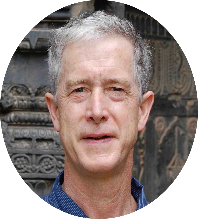
Brian A. Hatcher, PhD
Religion Faculty
Tufts University
Brian A. Hatcher, PhD is a Professor and Packard Chair of Theology in the Department of Religion at Tufts University. A scholar of religion and colonialism in modern South Asia, he is the author of several monographs, including Hinduism Before Reform (Harvard, 2020) and Bourgeois Hinduism, or the Faith of the Modern Vedantists (Oxford, 2008). With support from the American Institute of Indian Studies, the American Philosophical Society and the American Academy of Religion, Dr. Hatcher is researching the rise and fall of a Hindu monastic network in colonial Bengal.

Sangseraima Ujeed,PhD
Assistant Professor of Tibetan Buddhism Studies
University of Michigan
Sangseraima Ujeed,PhD Assistant Professor of Tibetan Buddhism at the University of Michigan, Ann Arbor. Her main research focus is the trans-national, trans-regional, and cross-cultural aspects of Buddhism, lineage, translation, monastic and reincarnation networks, and identity in Tibet and Mongolia in the Early Modern period, with an emphasis on the contributions made by ethnically Mongolian monk scholars.
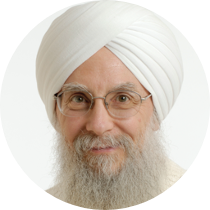
Sat Bir Singh Khalsa, PhD
Assistant professor of medicine,
Harvard Medical School, Brigham and Women’s Hospital;
Research Director,
Kripalu Center for Yoga and Health
Sat Bir Singh Khalsa, PhD is the Director of Yoga Research for the Yoga Alliance and the Kundalini Research Institute, Research Associate at the Benson-Henry Institute for Mind Body Medicine, Research Affiliate at the Osher Center for Integrative Medicine, and an Assistant Professor of Medicine at Harvard Medical School at Brigham and Women’s Hospital. His research has evaluated yoga for insomnia, stress, anxiety-related disorders, and in workplace and public-school settings. He works with the International Association of Yoga Therapists as scientific director for the annual Symposium on Yoga Research and editor-in-chief of the International Journal of Yoga Therapy.
Mass General Brigham is accredited by the Accreditation Council for Continuing Medical Education to provide continuing medical education for physicians.
Mass General Brigham designates this live activity for a maximum of 3.5 AMA PRA Category 1 Credits™. Physicians should claim only the credit commensurate with the extent of their participation in the activity.
Available Credit
- 3.50 AMA PRA Category 1 Credit™
- 3.50 Participation
Price
Registration Type | Tuition Fee |
|---|---|
| Claiming credit | $40 |
| Not Claiming credit | $0 |
Contact [email protected] if you require assistance in cancelling your online registration.

 Facebook
Facebook X
X LinkedIn
LinkedIn Forward
Forward